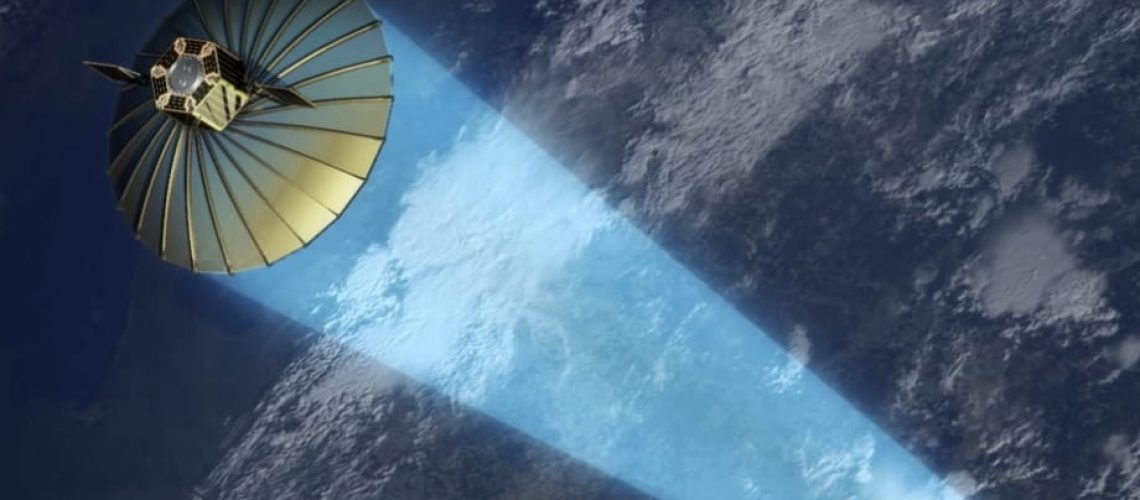Photo © https://i-qps.net/en/project/
We have been increasingly aware of the involvement of certain Asian powers, such as China, North Korea, and South Korea, in the conflict between Russia and Ukraine that has now lasted more than three years. A conflict which keeps becoming more and more global as time goes by… (1).
But we are less familiar with Tokyo’s growing commitment alongside Kiev.
While Japan firmly condemned the Russian invasion from the start (2), participated in the G7 sanctions policy, and provided humanitarian aid and non-lethal equipment to Ukraine, it took a historic step several months ago by signing a satellite intelligence-sharing agreement with the latter.
This partnership fits within a broader framework established by, on the one hand, the Japan-Ukraine bilateral security agreement of June 13, 2024 – which explicitly provides for « cooperation in the fields of intelligence and protection of classified information » (3) – and, on the other hand, the information security agreement signed on November 16, 2024, which entered into force on June 2st, 2025 and provides a legal framework for both parties to « protect, in accordance with their national laws and regulations, classified information exchanged between the governments of Japan and Ukraine » (4).
But Japan’s announcement on April 2st, 2025, of its first geospatial intelligence sharing with Ukraine marks a true historic turning point that goes beyond the bilateral framework. (GEOINT)
Negotiations begun in late February 2025, then intensified on March 6th after the temporary suspension of American intelligence sharing with Ukraine, between the’« Institute for Q-shu Pioneers of Space » (iQPS), an innovative SME emerging from the university environment of Kyushu in Japan, and the Main Intelligence Directorate (HUR/GUR) of the Ukrainian Ministry of Defense, have in fact resulted in an agreement providing for the transfer of synthetic aperture radar (SAR) imagery produced by iQPS satellites.
These data, consisting of high-definition images of 46 centimeters – usable day and night and in all weather conditions – must be provided by a constellation of five satellites with a project to expand to 24 satellites by 2027, the first step toward iQPS’ stated objective of 36 satellites by the 2030’s. The goal is to ensure updates every ten minutes. The integration of these capabilities into Ukrainian intelligence platforms only required a delay of a few months for installing adapted software and achieving full system interoperability (5).
This decision thus implicitly reveals the emergence of a new international spatial intelligence ecosystem, shaped by a reconfiguration of traditional alliances (I), Japanese geopolitical transformation (II), and unprecedented technological evolution (III) in this field. The first part of this article highlights the truly historic character of this pioneering agreement in multiple respects.
A Partnership Made Possible by the Reconfiguration of International Alliances: The Emergence of an Extended Spatial Intelligence Coalition
The Ukrainian conflict has revealed the vulnerability of supply chains in general, including regarding the delivery of live intelligence that is absolutely crucial for maintaining an advantage in 21st-century conflicts.
The temporary suspension by the United States of their intelligence sharing with Ukraine in February-March 2025 only reinforced Kiev’s desire to diversify its sources and explore new partnerships.
A new geography of spatial intelligence thus seems to be taking shape.
Europe reacted by proposing various solutions: France confirmed as early as March 6th, 2025, that it was providing military intelligence to Kiev (6), while Germany, Finland, and Italy made their respective SAR constellations available – SAR-Lupe, SARah, ICEYE, and COSMO-SkyMed.
Although significant, this European offer is not sufficient due to the war in Ukraine, and it is therefore in this context of fragmentation and search for alternatives that Japan has emerged as an unexpected but crucial actor, given Ukrainian needs on the battlefield.
It is in fact interesting to highlight that Japan has intensified its security cooperation with Western countries since the beginning of the war in Ukraine, considering that the conflict has direct repercussions on Indo-Pacific stability.
Tokyo has indeed, over recent years, strengthened its ties with European partners through bilateral agreements and increased collaboration (including in intelligence and defense matters), to better respond to renewed tensions and lack of stability in this part of the world.
It is therefore undeniable that one of the consequences of the war in Ukraine is that it has been the catalyst for creating new types of partnerships and strengthening coalitions in the intelligence field between Western allies, with the growing integration of Asian partners like Japan that bring complementary vision and capability on the Indo-Pacific front.
For Japanese Prime Minister Kishida, the security of Europe and that of the Indo-Pacific region are in fact « inseparables », considering that « today’s Ukraine could be tomorrow’s East Asia » (7).
In addition to Ukraine’s needs at a time of war, the current evolution seems therefore to show a growing trend toward a global strategic alliance, in which intelligence and security are increasingly shared between Europe, North America, and Asia-Pacific, in response to the new hybrid threats that directly affect them as well.
(By Murielle Delaporte)
Notes
(1) North Korea’s participation was recently officially confirmed and is to date the most direct, as shown in both the sending of conventional weapons and the deployment of 10 to 12,000 troops to reinforce Russian armed forces (see for example on this subject: https://www.npr.org/2025/04/28/nx-s1-5379436/north-korea-russia-ukraine-troops-putin-kim)
(2) See for instance on this issue: https://www.brookings.edu/articles/how-asian-countries-are-reacting-to-the-russian-invasion-of-ukraine/
(3) https://www.mofa.go.jp/press/release/pressite_000001_01389.html
(4) https://www.nationaldefensemagazine.org/articles/2025/5/20/agreement-to-strengthen-ukraine-japan-defense-industry-ties
(5) https://united24media.com/latest-news/japan-to-share-sar-satellite-based-data-with-ukraine-for-the-first-time-7763
(6) https://defence-industry.eu/japan-to-provide-ukrainian-intelligence-with-satellite-radar-imagery-amid-shifting-u-s-support/
(7) As quoted in: https://www.frstrategie.org/programmes/programme-japon/evolution-situation-ukraine-position-japon-2024
